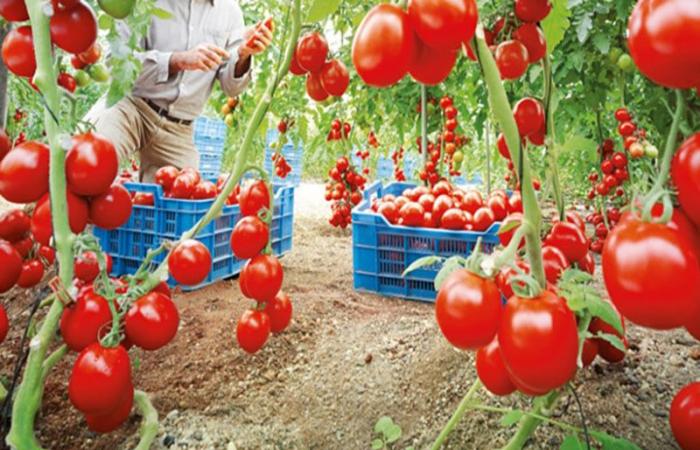Morocco, with its strengths in agriculture, no offense to some, continues to assert its place as a world leader in the export of tomatoes. Between January and July 2024, the Kingdom exported no less than 424,000 tonnes of this flagship product, marking an increase of 16% compared to the average of the last five years.
This feat testifies to the exceptional dynamism of the Moroccan agricultural economy, driven by intelligently deployed diversification strategies, particularly in Eastern Europe. However, a shadow now hangs over this success: the recent decision of the Court of Justice of the European Union (CJEU), which threatens to disrupt vital trade agreements for Morocco with the EU, particularly concerning products from of the Moroccan Sahara.
A flourishing agriculture facing the challenges of globalization
The excellence of the Moroccan agricultural sector owes nothing to chance. The Kingdom has been able to adapt to the demands of an increasingly competitive international market, diversifying its outlets and consolidating solid positions, particularly in Poland, where exports of Moroccan cherry tomatoes reached 30,000 tonnes in 2024.
This breakthrough is part of a global strategy which includes historic partners such as France, Germany and the United Kingdom, but also emerging markets in Eastern Europe and sub-Saharan Africa. This diversification allows Morocco not to be dependent on a single market and to face economic and political challenges with agility.
This rise is in no way affected by the recent decision of the CJEU, which calls into question the inclusion of products from the Moroccan Sahara in trade agreements with the European Union. No, it is really not this famous sword of Damocles for the Moroccan economy, let us be mistaken, in particular for its agricultural and fishing sectors. If Morocco has already demonstrated its resilience in the face of similar situations, the strict implementation of this decision could only lead to significant upheavals for the EU.
Moroccan officials are perfectly aware of their strategic importance for the European Union. In a context of growing demand for fresh products, France, the Netherlands and other Member States know that Moroccan tomatoes have become essential to guarantee the stability of their supply. Morocco has other assets in which case. It can very well adjust its export strategy and strengthen its economic alliances beyond Europe.
Economic diplomacy: a key weapon in the face of legal storms
Faced with this turbulence, Morocco has a major asset: its economic diplomacy. For several years, the Kingdom has excelled in the art of building strong partnerships with countries in sub-Saharan Africa, but also with emerging states in Asia and Latin America. If relations with European heavyweights like France or Germany remain strong, it becomes imperative for Morocco to further broaden its horizons, in order to minimize the risks linked to a possible establishment of trade barriers by the Union European.
In this context, Moroccan diplomacy, skillful and subtle, could prove crucial. Some EU member states, aware of the importance of Moroccan agricultural imports, could well play a key role in preserving the current agreements. It would be wise for Morocco to rely on these allies to neutralize the negative effects of European judicial decisions.
The decision of the CJEU in this context hardly represents a major challenge for Morocco; it would be naive to think that the Kingdom will bend under this pressure. Recent history has demonstrated that Morocco, far from allowing its policy to be dictated by external contingencies, is capable of bouncing back, adapting and even prospering in the most difficult conditions.
Trade agreements with the European Union are only one piece of the Moroccan economic puzzle, and the Kingdom, with its long-term vision, will continue to strengthen its position as a world leader in tomato exports, while exploring new new markets to ensure the sustainability of its growth.
Morocco, true to its reputation for resilience, will be able to face the legal and geopolitical obstacles that stand in its way, relying on strategic alliances and proactive economic diplomacy. The tomato sector, symbol of flourishing agriculture, will continue to prosper, despite a path strewn with pitfalls.






